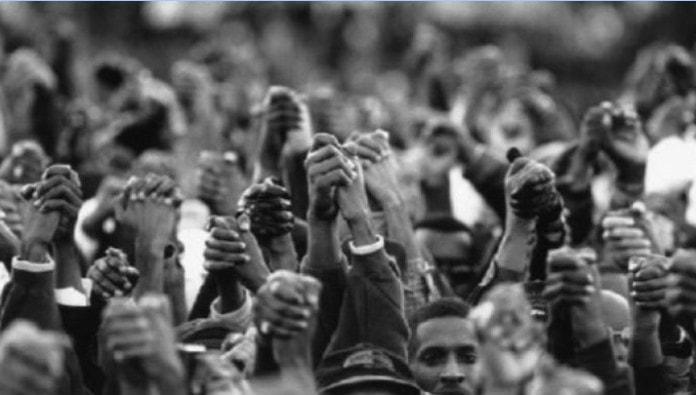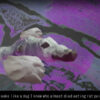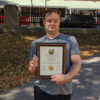
KJIPUKTUK (Halifax) – Growing up, I used to pray every day that I would wake up white. That shit is messed up. I thought being white would make my life easier, less complicated. This internalized self-hate came from the racism and microaggressions I experienced living in Nova Scotia.
My parents taught me to show up for people. Now I am learning to show up for myself and it is fucking hard. It takes more than talking-the-talk to dismantle internalized white supremacy. It takes time to do the internal work of understanding how it impacts my ability to live and survive in this world and affects the decisions I make.
My mom is the reason we are in Canada. She was awarded a Commonwealth scholarship to study at Acadia University. My parents decided to move across the world with three young children. My younger sister wasn’t born yet at that time.
I was one and a half years old when we landed in Nova Scotia. I cried the whole way on the plane. In the early nineties my family officially became Canadian.
I grew up in rural Nova Scotia. The first home that I remember was in Billtown, Nova Scotia. These were the best nine years of my life. My imagination ran wild in the pews of the churches my dad preached in, or while playing hide-and-seek in the graveyard at night. My younger sister and I would throw leeches onto the road at Lakeville Lake and watch cars run them over.
My family moved to the ‘city’ aka Dartmouth when I was ten. Eventually we settled in Cole Harbour. Things were different from the Annapolis Valley. In junior high and high school there were students who looked like me, which was comforting and validating beyond belief. I had my first African Nova Scotian educator, Maxine Tynes, may she rest in power!
Fast forward to this year, 2020. There has been a lot of social and civil unrest all over the world as BIPOC voices demand a better quality of life. There was so little time to breathe while chaos ensued on a global scale.
I’ve been thinking about feminism lately. What’s the purpose of having a voice and having a seat at the table? What would it mean to see more women (and femmes) in politics, especially BIPOC women like me?
Closer to election time in the US, I didn’t have the energy to stay up-to-date on the news. It’s been one thing after another this year. George Floyd died on national tv, other Black men, women and children murdered for being Black.
Ruth Bader Ginsburg (RBG) passed away. RBG fought so that white women could have a voice. Her work was important but she still made mistakes. Kamala Harris became VP elect and made history. Learning more about the VP elect and RBG made me wonder why women choose to admire and respect people who do not value and respect BIPOC bodies.
Anti-racism must include feminism. To all the womxn who don’t identify as BIPOC, what does your feminism give you? What does your privilege award you? What are you telling your children, your friends, and their kids about how to treat BIPOC womxn?
We’re so tired of having to handle other people’s projections. Remember that your white feminism has a huge impact since your voice carries more weight. Pay attention to what’s going on around you. Recognize that being a feminist includes all womxn, not just the ones you are comfortable with, or the ones that look like you. Be okay with being wrong, and remember to check your privilege when you leave your home.
Learning the hard way during my 33 years in this world I have come to understand that my body is not welcome or acknowledged in many spaces. I will show up regardless, because that is my right. My feminism has taught me to breathe deeply, and love hard. My setbacks are stepping stones. Show up. Show up for your friends. Show up for co-workers, and for total strangers. Show up for yourself.
See also: Tired bodies, a poem by Martha Mutale
With a special thanks to our generous donors who make publication of the Nova Scotia Advocate possible.
Subscribe to the Nova Scotia Advocate weekly digest and never miss an article again. It’s free!



